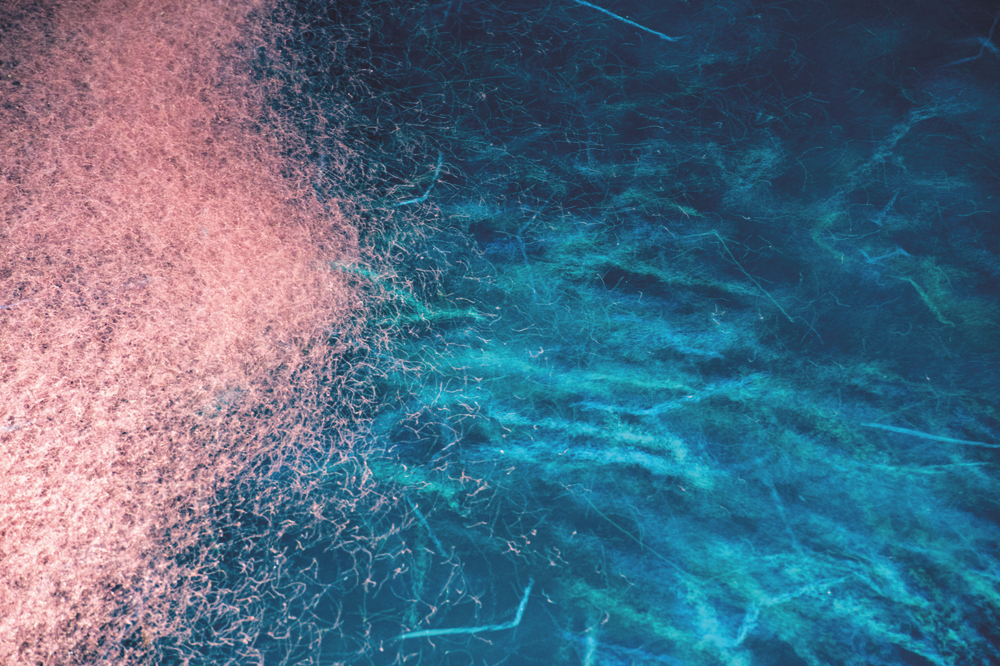Holland & Barrett has announced it will no longer be selling krill oil following pressure from Greenpeace.
Greenpeace accused the retailer of stocking products which threaten wildlife in the Antarctic, with the campaigning organisation calling on the krill fishing industry to step up to its responsibility to safeguard Antarctic waters and wildlife, and stop fishing in any areas being considered for protection.
The move comes in light of a Greenpeace International’s new report, Licence to Krill: the little-known world of Antarctic Fishing, which revealed that intensive fishing – including near existing and proposed protected areas – creates competition for food with penguins and whales, and threatens pristine Antarctic waters with potentially devastating fuel spills and fires.
It found that intensive fishing taking place in the immediate vicinity of feeding grounds of Antarctic wildlife, such as whales and penguins, creates direct competition for food, and that tracking data suggests vessels have anchored close to specially protected areas, despite the potential impact on wildlife and the seafloor.
The report also highlighted that activities suggesting risky fishing practices such as transhipment (transfer of catch) to huge reefers with long lists of previous infringements, such as poor safety records and low standards in pollution prevention from both sewage and oil.
In addition, the results of a YouGov survey, commissioned by Greenpeace, revealed that almost two-thirds (65 per cent) of the British public think retailers shouldn’t be stocking krill products fished in areas being considered for protection in the Antarctic Ocean. The survey also showed that almost nine out of 10 people (87 per cent) in Britain support the creation of a vast Antarctic Ocean Sanctuary, which would be the biggest protected area on Earth, with only three per cent opposed. Governments will this year decide whether to create this 1.8m square kilometre ocean sanctuary, which would put the area off-limits to fishing in a key area for expansion for the krill industry.
And despite the industry targeting annual growth rates of 11 per cent to 2021, according to the YouGov survey, 83 per cent of Brits never buy omega 3 capsules made of krill oil and seven in 10 Brits say they are unlikely to buy krill oil capsules in future – compared to just over one in 10 (12 per cent) likely to do so. When told about pros and cons of krill oil omega 3 capsules, nearly half of people surveyed (48 per cent) were more likely to buy a krill-free omega 3 health supplement over a krill-derived supplement.
In a statement on its website, H&B said: “At Holland & Barrett, the planet matters to us, and we’re always looking to improve our environmental impact. We have therefore decided today to remove all krill-based products from sale in the coming weeks in line with the recent Greenpeace report that calls for limiting fishing for krill in areas proposed for new Ocean Sanctuaries. Krill oil is an important source of omega 3 and is a crucial supplement so we will replace krill oil with algal oil, omega 3 products and other fish oil alternatives so our customers can continue to access this important supplement.”
Greenpeace said it had confirmed with the company that it has delisted krill oil globally, and this position will be incorporated into Holland & Barrett’s Buying Ethos. This means no Holland & Barrett store around the world will re-order these products from now, whether in the UK, Hong Kong, the Netherlands, China, India, Belgium, Sweden or beyond.
Responding to the news, Louisa Casson, of Greenpeace’s Protect the Antarctic campaign, commented: “In just over 24 hours, 45,000 people emailed Holland & Barrett’s CEO asking him to stop stocking krill oil products fished in Antarctic waters that need protection. It’s welcome news that they’ve recognised the public’s strength of feeling and heeded that call. Holland & Barrett have previously been ahead of the curve in protecting our oceans, including tackling microplastic pollution, so it’s great to see them doing the responsible thing when it comes to safeguarding the food for whales, seals and penguins.
“Almost two-thirds of Brits think retailers shouldn’t be stocking krill products fished in areas being considered for protection in the Antarctic Ocean. And almost nine in 10 support the creation of a vast Antarctic Ocean Sanctuary, which would put these sensitive waters off-limits to krill fishing. While the krill industry is projecting rapid growth over the next few years, that’s clearly out of step with what the British public want: they want to protect Antarctic wildlife.
“This is a major boost for proposals to protect the Antarctic this year. Other retailers still selling krill products fished in Antarctic waters earmarked for protection need to take action now.”
Cleanmarine is one of the leading krill oil brands in the UK, and in response, it issued a statement, pointing out that Aker Biomarine, which supplies the krill oil in Cleanmarine products, are the most ethical fishing company in the world, audited continually by the Marine Stewardship Council UK (MSC) for ethical and sustainable krill harvesting, with catch limits at one per cent of total krill population and this limit is never reached.
It added that MSC has an inspector on board the Aker Biomarine ship to independently verify the catch making it impossible to falsify catch records, all Aker Biomarine catches are reported to the Commission on the Conservation of Antarctic Marine Living Resources (CCAMLR), an international commission of 25 member nations to conserve Antarctic marine life, and that Cleanmarine is also independently audited on a yearly basis for the same purposes. Cleanmarine is one of the only krill oil suppliers in the UK to have MSC approval and, importantly, following the release of this report, the statement said that Greenpeace praised Aker Biomarine for its efforts and contribution both to research on the Antarctic ecosystem and responsible fishing practices in Antarctica.



